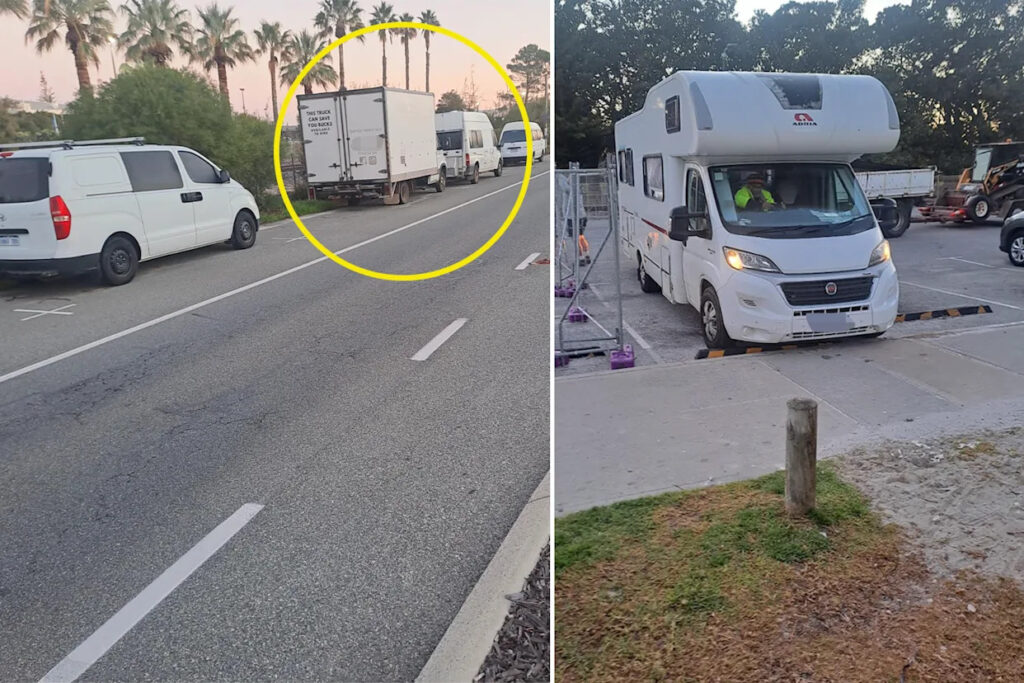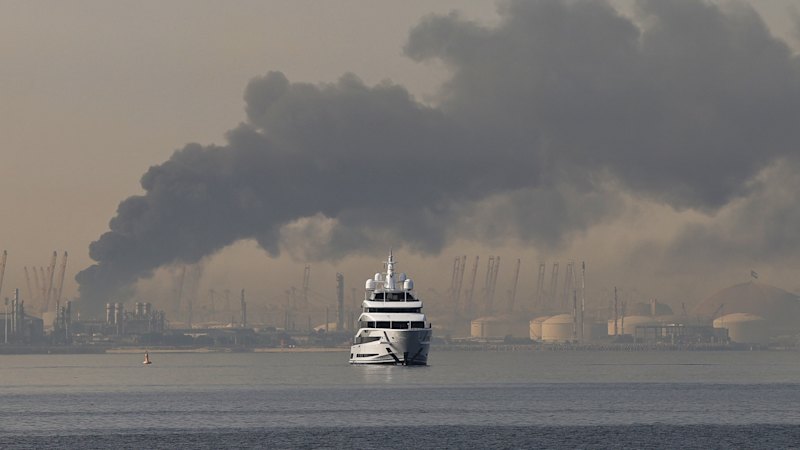
UPDATE: The escalating illegal camping crisis along Australia’s coast has prompted the Shire of Augusta Margaret River council to take urgent action. The council has just announced plans to double fines and overhaul its enforcement tactics amid growing frustration from residents.
Residents are demanding immediate government intervention as they witness “hundreds” of campers flouting the law without consequence. A local resident, speaking on the condition of anonymity, expressed outrage, stating that enforcement has been lax, allowing the issue to spiral out of control.
The situation has become dire, with the Shire admitting that previous measures have failed. Earlier today, Yahoo News reported on the council’s commitment to combatting illegal camping, reflecting the broader trend seen across Australia. The resident noted that while Fremantle has made strides, inconsistencies between councils are merely shifting the problem from one suburb to the next.
In a stark reminder of the issue’s severity, the resident recalled a peak period where more than 100 illegal campers occupied South Beach nightly during Christmas. Though Fremantle’s actions have reduced numbers, campers have simply relocated to areas with weaker enforcement like Woodman Point and Coogee.
Mayor Glen Dougall asserted, “We believe it will resolve the challenges that come with illegal campers.” However, the local resident pointed out that more than 50 vehicles continue to camp unchecked in a South Coogee car park, highlighting the ongoing crisis.
The existing parking bylaws and what he termed the state’s “poorly drafted” Caravan and Camping Ground Act limit councils’ enforcement capabilities. Officers lack the authority to compel identification or impose significant penalties, while police powers in this context remain nearly non-existent. “Councils do not have the power to move people on,” he lamented.
The resident described illegal campers as a “smart group” exploiting the system, many of whom are not homeless but choose prime locations to avoid accommodation costs. He emphasized that a consistent statewide approach with stronger enforcement powers is critical to addressing the crisis effectively.
Amid these challenges, the City of Fremantle has implemented timed parking, erected no-camping signs, and restricted access to certain parks. However, a spokesperson for the city did not directly address the effectiveness of these measures but stated they aim to provide more equitable parking for all users.
The issue of illegal camping is not just a local concern; it resonates throughout Australia’s coastal regions, where tensions between residents and visitors escalate due to environmental impacts and strain on public amenities. Many individuals, forced by rising housing costs and a lack of affordable rental options, resort to illegal camping as a last resort.
As this crisis unfolds, it remains critical for authorities to take decisive action. The community is urged to report illegal parking directly to the City, emphasizing the need for collective responsibility.
Next steps: Residents and local officials are calling for immediate changes to state laws to provide councils with the necessary tools to enforce regulations effectively. The situation demands urgent attention as illegal camping continues to disrupt community harmony across the region.
Stay tuned for further updates on this developing story.






